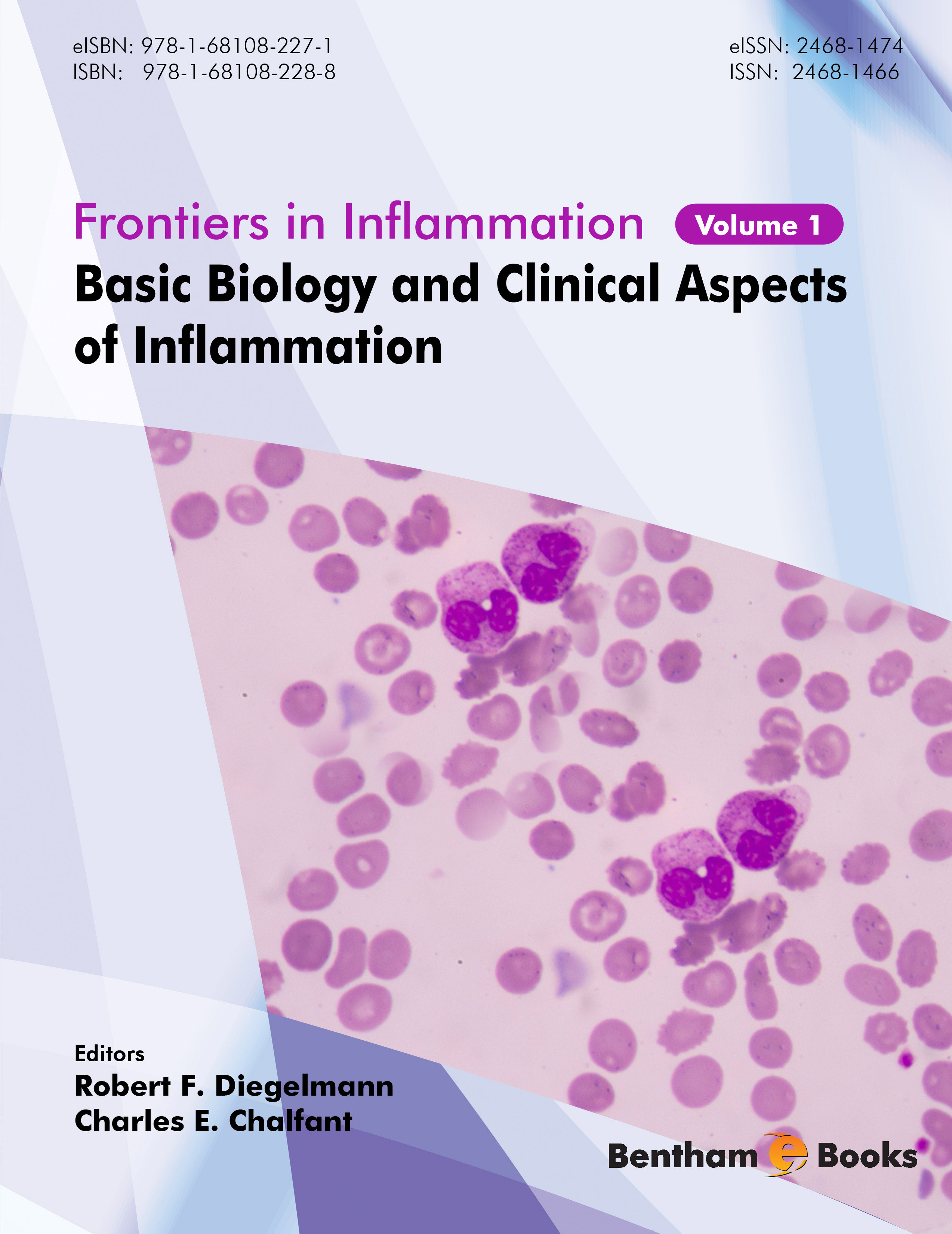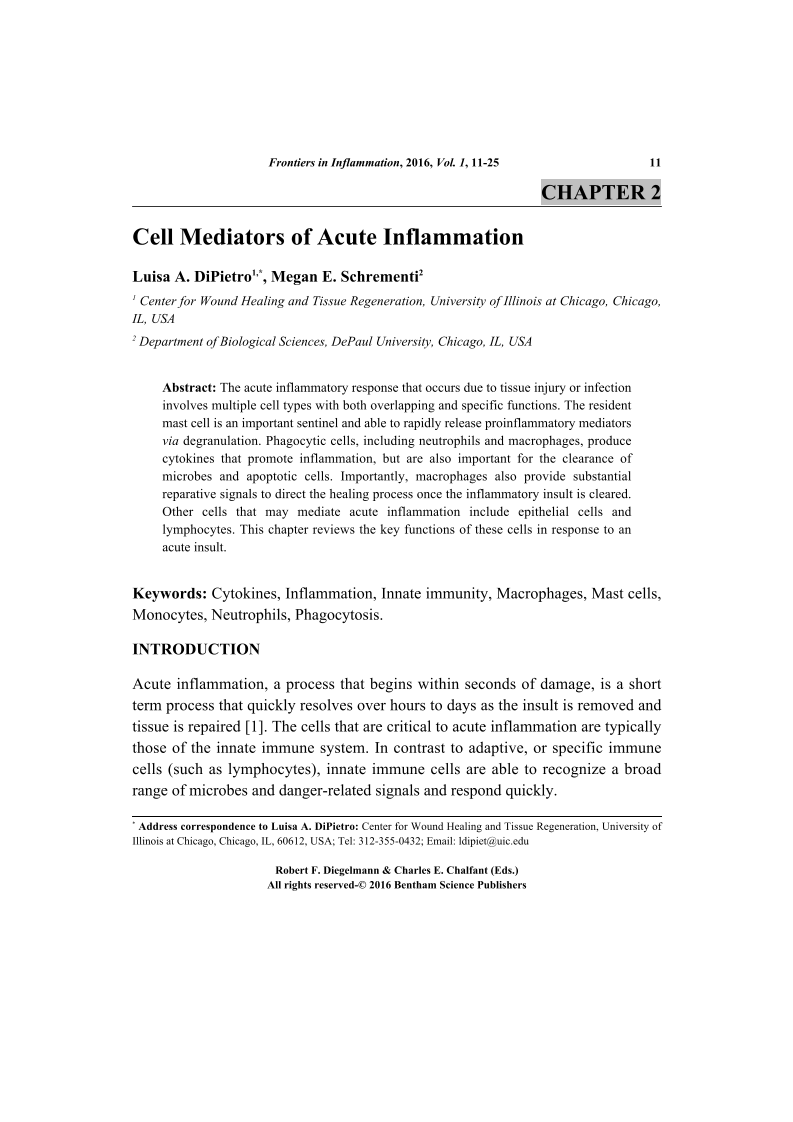Cell Mediators of Acute Inflammation

- Authors: Luisa A. DiPietro1, Megan E. Schrementi2
-
View Affiliations Hide Affiliations1 Center for Wound Healing and Tissue Regeneration, University of Illinois at Chicago, Chicago, IL, USA 2 Department of Biological Sciences, DePaul University, Chicago, IL, USA
- Source: Basic Biology and Clinical Aspects of Inflammation , pp 11-25
- Publication Date: March 2016
- Language: English
Cell Mediators of Acute Inflammation, Page 1 of 1
< Previous page | Next page > /docserver/preview/fulltext/9781681082271/chapter-2-1.gif
The acute inflammatory response that occurs due to tissue injury or infection involves multiple cell types with both overlapping and specific functions. The resident mast cell is an important sentinel and able to rapidly release proinflammatory mediators via degranulation. Phagocytic cells, including neutrophils and macrophages, produce cytokines that promote inflammation, but are also important for the clearance of microbes and apoptotic cells. Importantly, macrophages also provide substantial reparative signals to direct the healing process once the inflammatory insult is cleared. Other cells that may mediate acute inflammation include epithelial cells and lymphocytes. This chapter reviews the key functions of these cells in response to an acute insult.
-
From This Site
/content/books/9781681082271.chapter-2dcterms_subject,pub_keyword-contentType:Journal -contentType:Figure -contentType:Table -contentType:SupplementaryData105

